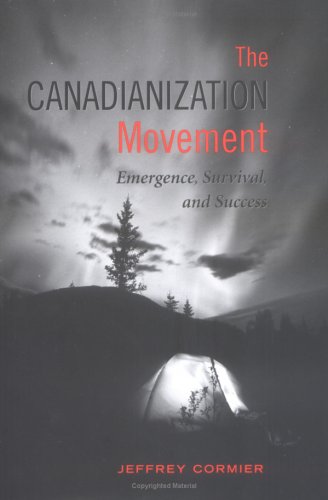

Most ebook files are in PDF format, so you can easily read them using various software such as Foxit Reader or directly on the Google Chrome browser.
Some ebook files are released by publishers in other formats such as .awz, .mobi, .epub, .fb2, etc. You may need to install specific software to read these formats on mobile/PC, such as Calibre.
Please read the tutorial at this link: https://ebookbell.com/faq
We offer FREE conversion to the popular formats you request; however, this may take some time. Therefore, right after payment, please email us, and we will try to provide the service as quickly as possible.
For some exceptional file formats or broken links (if any), please refrain from opening any disputes. Instead, email us first, and we will try to assist within a maximum of 6 hours.
EbookBell Team

5.0
90 reviewsIn The Canadianization Movement, Jeffrey Cormier examines the 'Canadianization' of the Canadian intellectual and cultural communities from the 1960s to the 1980s. The author documents the efforts of cultural nationalists as they struggled to build a strong, vibrant Canadian cultural community.
Cormier asks four questions to guide his analysis. First, why did the Canadianization movement emerge when it did? Second, how did the movement transform itself for long-term survival? Third, what kinds of mobilizing structures did the movement make use of, and what influence did these structures have on the movement's activities? And finally, how did the movement maintain itself in times when the political and media climate was unsupportive?
Using data collected from archival sources as well as twenty-two in-depth interviews with participants, Cormier documents the actions that organizational intellectuals took in pushing for social and cultural change, an aspect of social movements literature that, until now, has largely been only theorized about.